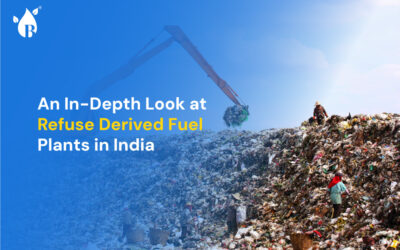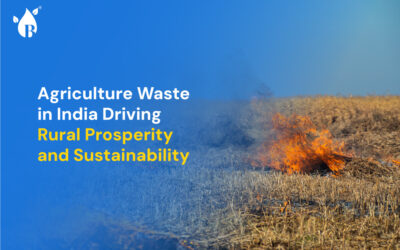India, like many other countries, is not new to environmental challenges. There’s sudden heat waves, floods, longer wildfires, severe storms, irregular swelling and emptying of drinking water bodies. Climate change is the heart of it all. One of our biggest weapons to battle climate change is to reduce greenhouse gas emissions. And biofuels are promising warriors.
India is heavily energy reliant. We can’t sustainably continue meeting our energy targets with oil and gas. Our lands are also rich in renewable energy sources. The National Biofuel Policy aims to utilise our own energy resources. It was introduced in 2009 and improved in 2018. It is a roadmap to promote biofuels in India. It encompasses the complete supply chain of biofuel from feedstock requirements to usage.
Here are some salient features of the National Biofuel Policy 2018.
The policy set blending targets for biofuels. It aims to achieve a 20% blending of ethanol in petrol and 5% blending of biodiesel in diesel by 2030. Despite the blending targets being ambitious, India has reached halfway there.
The ethanol-blend in petrol has increased from 0.67% in 2013 to 10%. This happened ahead of schedule. And then, The National Biofuel Coordination Committee (NBCC) fast-tracked the target of 20% blend from to 2023.
Categorization of Biofuels
Based on the raw materials used, biofuels are categorized into 2—basic and advanced. Basic biofuels are called 1G biofuels. They use existing crops like sugarcane or soy as feedstock. But there’s a problem here. If food crops are used as biofuel feedstock, our food availability will be disturbed.
Advanced biofuels (divided into 2G and 3G biofuels) solves this issue. 2G biofuels are made from non-food crops, agricultural residue, and organic waste. 3G biofuels are made from algae.
Sustainable Feedstock Production and Diversification
The policy emphasises the need for having multiple sources of feedstock. It encourages the use of various non-food feedstocks. Agricultural residues, non-edible oilseeds and
used cooking oil are some of them. It is also recommended to use degraded, substandard lands and wastelands to cultivate non-food crops. This will ensure food crop agriculture and food security of India is not disturbed.
Related Read: Biofuels: A Solution to Climate Change or a Threat to Global Food Security
The Indian government reduced the Goods and Services Tax (GST) on biodiesel supplied to oil marketing companies for blending. The GST was reduced from
12% to 5% in October 2021. This was an initiative by the Union Finance Minister to fasten our blending targets. Later in 2022, India expanded tax exemption for
higher proportions of ethanol blend. It was increased from 10% blend to 12-15% blend.
Storing feedstock is space-consuming for farmers. That’s why they easily turn to stubble burning. According to a policy, farmers can lease land at Rs.1/year for 1 acre to store feedstock. In Union Budget 2023, Haryana has set aside Rs.1000/acre for management of crop residue for farmers. These are a few of the many subsidies and incentives by the Indian government to accelerate biofuel adoption.
Other Aspects of The National Biofuel Policy
The policy also emphasises on research and development. This will focus on increasing cost-effectiveness at scale and increasing production output efficiency. It also promotes infrastructure for biofuel distribution and retailing. This way, both production grows and market opportunities open.
Awareness campaigns and training programs are required to educate everyone involved. From feedstock aggregation for farmers to capacity building for stakeholders, informative workshops will be helpful. The National Biofuel Policy also aims to establish standards, guidelines and certifications. This will ensure the quality and sustainability of biofuels produced.
However, the journey towards widespread biofuel adoption has its own challenges. Scattered feedstock availability, infrastructure gaps, and stakeholder resistance pose hurdles along the way. To overcome these challenges, we must invest in research and development, revise policies as needed and provide financial benefits.
The future of biofuels in India is promising. With continued support, biofuels have the potential to transform India’s energy landscape. Scaling up production, achieving higher blending targets, and exploring advanced biofuel technologies are key objectives. The adoption of biofuels will contribute to a more sustainable, and energy-independent India.





